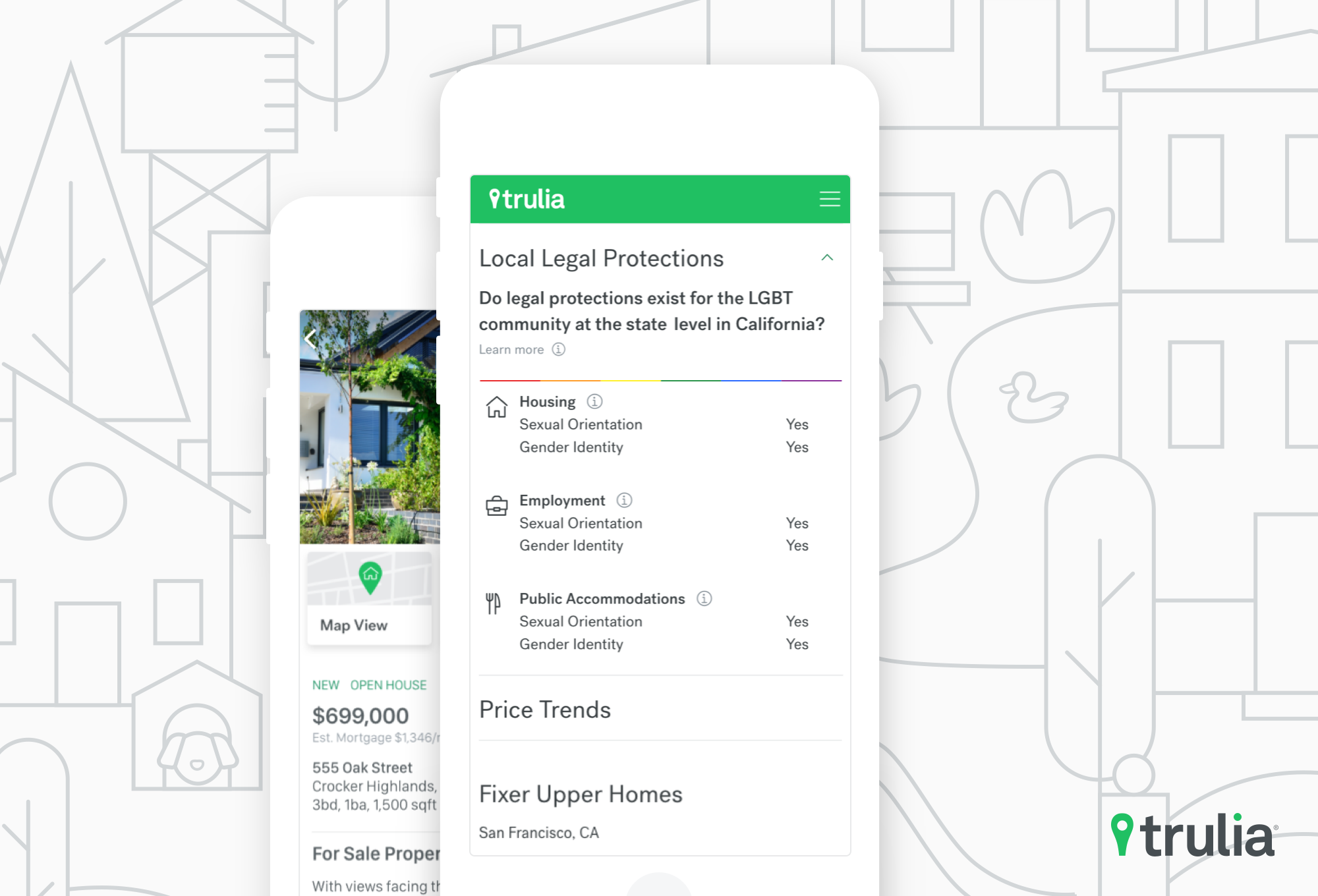When looking for a new home online, it’s important to consider factors beyond the number of beds and baths. Some internet listing sites already provide information about things like the proximity of schools, crime rate, and traffic congestion, but a new feature on Trulia aims to help a particular segment of renters and buyers ensure they’ll feel at home in their new neighborhood.

Today, the San Francisco–based real-estate site is launching Local Legal Protections, a new quality-of-life metric which will appear on every one of its for-sale and off-market listings.
It aims to help members of the LGBT community gauge the status (or lack thereof) of nondiscrimination laws ensuring equal access to housing, employment, and public accommodations in a given jurisdiction. This location-based data is provided through a partnership with the Movement Advancement Project—"an independent think tank that provides rigorous research, insight and analysis that help speed equality for lesbian, gay, bisexual and transgender (LGBT) people,” according to its website.
"Currently, national housing and employment non-discrimination laws only protect some classes, such as sex, race, age, color, religion, and national origin," Trulia said in a blog post. "That means explicit protections for people who identify as LGBT do not exist at the federal level and are inconsistent at the state and local levels. With the Local Legal Protections feature available on all property details pages on Trulia, homebuyers will know if their prospective new home is in a place where there are laws to prevent discrimination based on sexual orientation and gender identity in the areas of housing, employment, and public accommodations."
That a feature like this even needs to exist has to do with the varying legal status of LGBT individuals from place to place. Federal housing and employment laws prevent discrimination on the basis of sex, race, age, religion, and ethnicity, but sexual orientation and gender identity aren’t covered.
Currently, 22 states plus Washington, D.C., have expanded their anti-discrimination laws to include LGBT protections, and Trulia estimates that 55.2 percent of all housing units are covered by such statutes either at the state or local level.